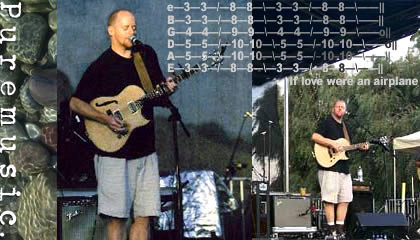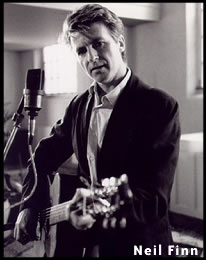
A Conversation with Willy Porter (continued)
PM: How did you and your wife meet? What's her name?
WP: Her name is Catherine. We met at an environmental benefit that she was a sponsor of, at the University of Wisconsin. When she was going to school there and I was living in Madison, she was one of the organizers of this benefit, and that's where I met her.
PM: And you were playing?
WP: Yeah.
PM: Wow, it's just beautiful how people meet, it's totally unpredictable.
WP: It is, man.
PM: Our readers always like to know: what are you reading these days?
WP: Let's see. I'm just digging into Breach of Faith [by Theodore H. White], about the end of the Nixon administration. And I recently read Pete Goss's book Close to the Wind, all about his experiences in the Vendee Globe yacht race, the single-handed round-the-world sailing adventure, including his rescue of a fellow sailor in distress. During that race, he rescued a French sailor in some unbelievable condition.
PM: Wow.
WP: I also just read Sting's memoir, Broken Music.
PM: Was that good?
WP: I thought it was great. The guy is a real wordsmith, a real master of the language. It was great.
PM: And what do you find yourself listening to at the moment?
WP: Well, only Martin Barre's music.
[laughter]
PM: Oh, yeah, that's right.
WP: I'm totally into Neil Finn, too. His last record, One Nil, it's fantastic.
PM: That's not the one that he cut in Nashville with Jay Joyce, right? That's after that, I think.
WP: I think it's the one after that. This was the one with Wendy and Lisa on it.
PM: Oh, really?
WP: Sheryl Crow visits on it. Yeah, it's wonderful. He's got some songs on there that--his mother passed, and a couple of the tunes on there, they're just haunting. That guy, he's had a remarkable career. I think he's a great artist.

PM: Your songs have a very unabashed spiritual slant.
WP: Uh-huh.
PM: Do you have any special orientation in that regard?
WP: Oh, I guess I consider myself to be a Christian, kind of struggling along, but I also have a strong affinity for the Buddha and for the goddess, and some sort of Pagan ideas as well.
PM: [laughs] Atta boy, you're my kind of guy.
[laughter]
WP: So I'm a seeker. I don't have any answers, but I'm searching.
PM: Yeah, and all those avenues have something good.
WP: Don't they, though.
PM: I mean, if you're a seeker, there's a little bit of this, a little bit of that. Because otherwise, if you're in the door closing business, all you're going to get is what's behind door number one. That's my take on it, anyhow.
WP: Exactly. So we sort of settled on Unitarianism, because it seems to celebrate everybody's idea and what's good about it.
PM: Are there any books in that domain that have meant a lot to you in your life?
WP: The Power of Myth by Joseph Campbell. That particular book was a big eye-opener for me. And I still read the Bible a fair amount when I can.
PM: Any comments or thoughts on where this crazy music business seems to be headed?
WP: All I can say is that in the end I think the consumers are going to win. And as this thing fragments, when it gets blown apart by the greater availability of music, the artists who want to tour and the artists who are actively seeking to get their music out there are the ones who will survive. And hopefully the days of selling twenty million records are gone. Because we don't really need that. I don't think as a culture we need it, and I don't think as human beings we need to suffer through hearing that. In a way, I feel bad for the artist who has that happen, because sure you get all the money and all the booby prizes, but then you have to live with the fact of facing your own deflation. Whereas if you have modest needs, you just keep on soldiering, and everybody wins.
PM: Yeah, I hear that.
WP: Dar Williams says, "Make a living, not a killing." And I think that holds true for those who have the mind to do it. Now is a great time in which to create your own music and sell your own music. I mean, you can have your own studio in your house, it doesn't cost that much. And there are no production costs. If you want to get in the car and tour around, then you can do it. I think that side of it is great.
PM: Absolutely.
WP: I hate to see the majors fall apart, but I think until they figure out how to make it interesting to buy a record again, versus downloading the music, it's their problem to solve.
PM: Yeah, until they quit making $300,000 records and learn how to make them for forty grand, it's like--
WP: Amen! continue